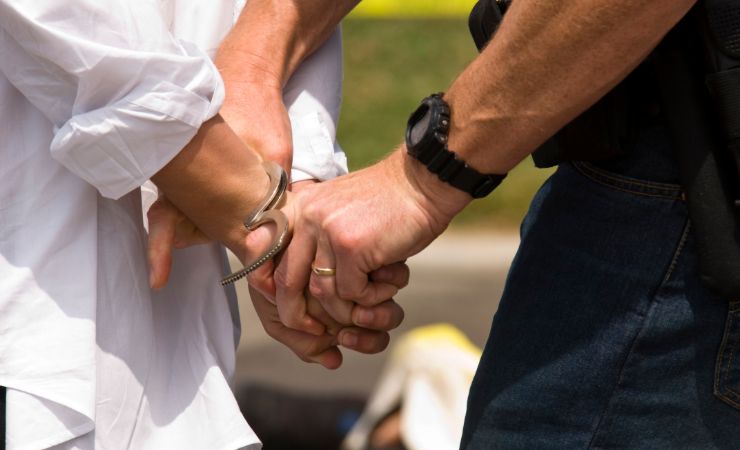Staten Island Conspiracy Lawyer

Staten Island Conspiracy Attorney
Charges of conspiracy in Staten Island, NY are serious offenses that can carry potential penalties nearly equal to the crime for which the conspiracy was allegedly planned. Further, conspiracy charges are much easier for a prosecution to prove since a guilty verdict does not rely on proving the crime was committed. If you’ve been charged with conspiracy to commit a crime, contact a Staten Island conspiracy lawyer to discuss the details of your case.
Conspiracy Attorney in Staten Island, NY
Michael Vitaliano and his team at The Vitaliano Law Firm are an established presence in the New York City court system. With a reputation for persistence and aggressive defense, Michael Vitaliano has the knowledge and experience needed to represent you in your case. A successful and strong defense in a conspiracy case involves conducting thorough investigations, interviewing witnesses, and obtaining crucial evidence.
Our personalized and dedicated approach to each client ensures that every case receives our utmost attention and care. The Vitaliano Law Firm offers a free consultation to discuss the needs of your case and present you with your options for proceeding with a defense.
What Is Conspiracy?
Conspiracy involves an agreement between two or more parties to commit a criminal act. Conspiracy cases can fall under state or federal jurisdiction, depending on the details of the case. In order to legally qualify as conspiracy, the agreement must also include the act or the intention to complete the agreed-upon crime.
For example, planning and intention to complete a crime can include:
- Purchasing weapons or equipment
- Stalking an individual
- Drafting a detailed plan
- Casing a location
The following include some of the more common types of conspiracy accusations:
- Drug trafficking conspiracy
- Conspiracy to commit fraud, including bank, wire, insurance, and healthcare fraud
- Money laundering conspiracy
- Conspiracy against a government official
- Conspiracy of rights
- Conspiracy to commit murder, rape, kidnapping, or robbery
When the conspiracy charges involve various types of offenses, prosecutors will generally file for federal conspiracy charges in order to cover everything under one case.
How Is Conspiracy Prosecuted?
One of the most common misconceptions regarding conspiracy cases is that the government must prove that a defendant committed the crime for which they are being charged as having conspired to commit. However, the prosecution is under no obligation to prove the underlying offense was completed in order to prosecute for the conspiracy. In fact, the agreement itself to commit the crime is what makes the conspiracy illegal.
For a conspiracy conviction to be made in New York, the prosecution must prove that two or more persons knowingly entered into an agreement with one another to violate a law. This agreement must have been entered into intentionally rather than by accident or mistake.
In addition, under New York statutes, the government must further prove that at least one of the defendants committed an overact, which was done in furtherance of the conspiracy. This means that it is not enough for the prosecution to prove there was an agreement to commit the crime but that the conspiracy was, at least in part, acted on.
An example of an overact could be obtaining the materials necessary for the crime. For example, if two people conspired to murder another person with a gun, purchasing that gun with the intent to use it for the murder could be considered an overact.
Conspiracy cases can be relatively straightforward, as there is comparatively little to have to prove in contrast to a criminal offense case. However, this can make the defense more complicated. It is highly recommended that you work closely with an experienced and skilled conspiracy attorney who can effectively challenge the prosecution on their evidence or claims.
FAQs
Q: What Is the Sentence for Conspiracy Charges?
A: If you are found guilty of committing conspiracy, the sentence will be commensurate with the intended crime. For a misdemeanor offense, for example, conspiracy will carry a maximum punishment that cannot exceed the maximum allowed penalty for the related misdemeanor.
However, conspiracy in the first degree can lead to a life sentence in prison, depending on the crime for which you are accused of conspiring to commit. A conspiracy lawyer can negotiate your sentence and defend your case.
Q: What Is the Defense for Criminal Conspiracy Charges?
A: To defend against conspiracy charges, you can rely on proving that no conspiracy existed, you did not get involved in any conspiracy agreement, you had no intention to commit a crime, you lacked the understanding that an agreed-upon plan involved criminal activity, you abandoned or withdrew your involvement, or that your involvement was done under duress or coercion.
To show evidence of abandonment or withdrawal, you must demonstrate that you took affirmative action to communicate your withdrawal to your co-conspirators.
Q: What Is the Penalty for Conspiracy Against Rights?
A: Conspiracy against rights involves two or more persons making arrangements together to injure, oppress, threaten, or intimidate any person exercising a right or privilege protected by the Constitution. Doing so is punishable by up to ten years in prison plus fines.
However, if the conspiracy results in an attempt to kidnap, commit aggravated sexual abuse, or kill, or the successful act of any one of those attempts, the penalty can include up to life imprisonment or the death sentence.
Q: What Is Federal Conspiracy?
A: Federal conspiracy occurs when two or more people conspire together to commit a criminal act under the U.S. Code. At the basic level, conspiracy involves an agreement between two or more parties to commit a criminal act. The act becomes a federal conspiracy when the act in question would violate a federal law.
As with other conspiracy cases, the government is not obligated to prove that the crime in question was successfully completed to prosecute for conspiracy.
Your Staten Island Conspiracy Lawyer
It is imperative if you’ve been charged with conspiracy to speak with a qualified and experienced conspiracy attorney right away. To get started with a free consultation, contact the offices of The Vitaliano Law Firm today. Let us put together a strong defense strategy that works toward the most favorable outcome in your case.
Testimonials






